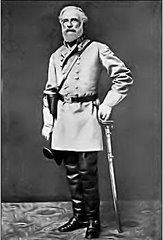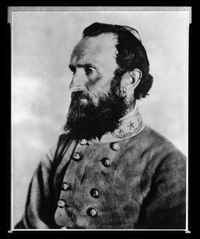Interpreting Scripture
I was recently in a small and friendly online debate about the Genesis creation account. One group of people, including myself, argued for the traditional interpretation of Genesis, that God created the universe in six literal days, rested on the seventh, and that Adam and Eve were the first humans He created. However others argued that the story was not literally true, that Moses used this as a piece of literature or poetry, in order to explain why man is sinful, not how; why God created the world, not necessarily how, and so on.
Both sides brought up good points, but obviously I hold to my original viewpoint that God created the world in six literal days, and rested on the seventh, and that the Adam and Eve story is true.
But why? Why couldn’t this be a metaphor, or parable, or poem? Ultimately, it is about how you interpret the story, right? Jesus told parables, so why couldn’t this be a parable? How do we interpret Scripture? How do we apply hermeneutics?
Ultimately, if we had a perfect nature, we could understand this a little better. But I do believe that we can use certain ideas to help us. Therefore, I will present to you my tips on how to interpret Scripture.
1): Interpret and defend Scripture with Scripture. What I mean is this: don’t proof-text with random verses without attempting to understand what they may mean in reference to other parts of Scripture. Roman Catholics, I think, do this a bit with their theology on the Pope. Jesus told Peter he would build His church on this rock, speaking, and perhaps even referring to Peter. So doesn’t it follow that Peter is the head of the church, and when he dies, someone else should become the head? Well, I do not believe this, because I don’t think we can justify such a doctrine as this sort of church government on one verse. [I know that Roman Catholics would further their argument, and I do not want to oversimplify their points, but this is just how I see it.] Calvinists and Arminians are both guilty of "proof-texting." One verse says that our salvation was "predestined" while another one says that Christ "died for all." I would argue that it is good to compare similar passages of Scripture and see what the common ground or common understanding is before we "proof-text" our points.
2): Treat all of Scripture, and really all of history, as one story. We should not separate the Old Testament from the New Testament making them two different stories, two different peoples, or two different Gods. It is one story, and the New Testament is really the climatic point of the story. Even that which is to come is part of this one story. Me writing this is just a small part of the one great story God has. I believe that this helps us understand the creation story. When we treat the creation account as if it is poetic, we are left with two options. We could assume that all of Scripture is a metaphor or poem, used by God to explain something to us. And of course, when you reject the incarnation of Jesus, you are really preaching heresy. You may stay consistent in your thoughts, but your thoughts are heretical. The second option you have is to pick up somewhere and say "this is when the real history begins." This seemed to be the mindset of the particular people arguing for an alternative creation account. It seemed to be that the true history began with probably with Moses, since he wrote Genesis. This is not heresy, so long as it is believed that Jesus is our Savior for our sin. But this is self-contradicting and thus has much theological ramifications to it. What happens to the theology taught by Paul that "from one man came sin so from one man comes redemption" if our sin was not from one man. And if we are products of multiple evolutionary races, when was the first sin, and how did it affect all of humanity? What happens to the generations listed in Genesis. How does the seed of the woman crush the serpent? Although the stories of Noah, Moses, Abraham, David, and of course even Adam and Eve are all different stories to teach us different lessons, they are also part of one great story leading us to Christ in some form or fashion. If we disregard the first few chapters of Genesis, we have serious ramifications to deal with. How do we have a "happily ever after" without an "In the beginning?"
3): Consider the broader context of what you read in Scripture. When you read Scripture, it is easy to think "Okay so this is exactly what it’s telling me…I need to do this." At times this is okay, but I’d caution you against this in many regards. Consider the broader context of the Scripture. Who is the author, the receiver or audience, the time period the Scripture was written in, etc. Consider speaking in tounges. I have mixed feelings personally toward the role of toungs, but I do not find it right to say that since some of the early Christian's spoke in tounges then we should at any time today. Or even because Mark 16:17 seems to say taht we shall "speak in new toungs." We must consider the background to the writings, and then consider its relavence to us today. Of course I write this as much to myself as to any of yall, because it is easy to forget.
4): Constantly look for symbolisms and literary devices. Even if what you are reading in Scripture is factually and historically accurate, God could providentially preserve certain events to point as signs to other events. For instance, Abraham sacrificing Issaic is historically an event, but it is also a typology to Christ. It points us to God the Father sacrificing His only Son. This is just one of many examples. Consider Noah starting the whole world over, becoming a kind of Adam. Or Moses being saved in a basket (the original Hebrew is the same word used for Noah's ark, actually) through water (similar to the story of Noah). It would take a whole seperate blog to write these out, but they are interesting. Consider how the Tower of Babel brought many languages from one, and Pentacost brings many languages together. Consider how Adam ate from the forbidden food, and Satan tempted Jesus with food. Consider how Adam sinned eating from a tree, and Jesus saves dying on a tree. Consider how Moses (two times and Noah, were saved by water, and how we are saved by the waters of Baptism. Consider how the Bible begins with a marriage (Adam and Eve) and ends with a marriage (Christ and the Church). These are all real things, historically even, and are great symbolisms for us. Of course symbolism is not the only literary device used in the Bible. We see chiasms, poetic language, etc.
That about covers it as far as my tips go. I believe the literal interpretation of Genesis. The way I look at it is this: sure, it may all seem like nice poetry and wonderful stuff. But why can't it be true? Why would the God of wonders beyond our galaxy tell us a make believe story. Jesus told parables that help us understand the story better. But the story is true, and it is our story. It is the best darn story on ever. Man tells stories such as "Narnia" and perhaps even the contraversial "Harry Potter" to help us better understand the Scriptures and who we really are. But we as humans long for these stories because it is in our nature. Even non-Christians long for these fairy tale type stories. We are made in the image of God, so it is His nature as well. We may not realize it, but we are in the middle of a great fairy tale. But this one has the greatest "happily ever after" any fairy tale has ever had. Just don't forget the beginning.
What do you think?
God bless His people
God bless America
Pray for our Troops
May 21, 2008
Ryan Hampton
Wednesday, May 21, 2008
Subscribe to:
Post Comments (Atom)










1 comment:
Ryan,
You just saved me some time. I wanted to write something along these lines, and you just did a great job saying many of the same things. This was very good. Keep up the good work!!
Post a Comment